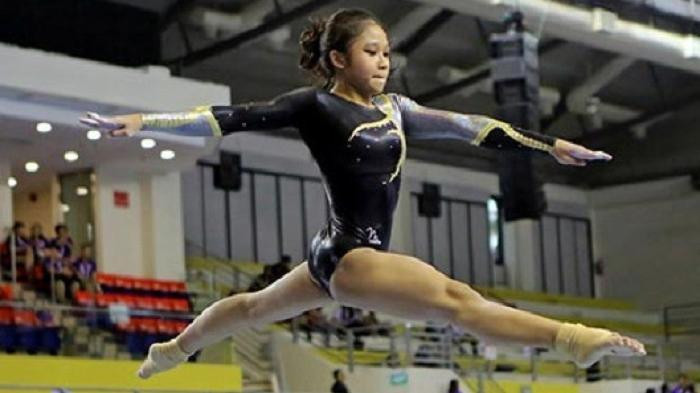Popular Reads
Top Results
Can't find what you're looking for?
View all search resultsPopular Reads
Top Results
Can't find what you're looking for?
View all search resultsWatanabe vaults barrier to make gymnastics more enchanting, popular
Despite its status as the mother of sports, gymnastics is still struggling to gain popularity. The sport, which has introduced stars like Simone Biles and Nastia Liukin to the world, is still finding its place, especially in countries where gymnastics is not well supported.
Change text size
Gift Premium Articles
to Anyone
D
espite its status as the mother of sports, gymnastics is still struggling to gain popularity. The sport, which has introduced stars like Simone Biles and Nastia Liukin to the world, is still finding its place, especially in countries where gymnastics is not well supported.
International Gymnastics Federation (FIG) president Morinari Watanabe has vowed to improve the sport's popularity level. Watanabe, of Japan, who took the helm of the federation in 2016 from Bruno Grandi, is trying to provide access for countries to develop gymnastics through what he calls the Family Strategy.
During his visit to the Indonesia’s National Olympic Committee (NOC) office in Jakarta last week, Watanabe explained that his federation was currently trying to expand by providing access to developing countries to accelerate their gymnastics development.
“The international federation cannot support every country in the world. We can say, ‘we will support it,’ but the reality is we can’t,” he told journalists. Therefore, he has developed a strategy to assist the gymnastics community in countries like Indonesia in getting access to better training facilities offered by countries with strong gymnastics traditions.
The Family Strategy hailed by Watanabe sees the FIG act like a father with strong gymnastics countries like the United States and China playing the role of older siblings. Indonesia and other countries which are trying to develop the sport are treated like junior siblings.
“Of course the FIG is overseeing these big brothers and sisters but they [are expected] to support the developing countries,” he added.
As part of the scheme, five Indonesian male gymnasts will go to Japan in April to train for 10 days.
Unlike soccer world governing body FIFA, the FIG does not have a development program that distributes funding for national federations. FIFA, through its FIFA Forward Development Program, provides funding for its members with limited financial capacity as aid that can be used for the federations’ daily operations and to design long-term plans.
In 2018, the FIG started to move further with its development program by naming a development officer for the African continent with the delegate working “to address Africa’s peculiar challenges and to help accelerate the development of gymnastics in Africa.”
“We didn’t promote [the sport]. We didn’t give a lot of money for the athletes. Now that’s changed. For example, the world championship only provides minor prizes and now we are trying to change that as gymnastics is a major sport,” he said.
In Indonesia, gymnastics has also found a similar struggle as the sport has not met with popular support even though it has the potential to boost the country’s achievements in a multi-sports event.
The sport often struggles to fund training for athletes abroad as its lack of popularity has determined the government’s attention toward it.
Indonesia currently only has one single promising talent, Rifda Irfanaluthfi, who competes in artistic gymnastics. Rifda won silver in the floor exercise at the 2018 Asian Games in Jakarta and Palembang, South Sumatra, and brought home one gold and three silver medals from the latest Southeast Asian Games in Philippines last December.
Watanabe expressed an interest in working hand-in-hand with the Indonesian Gymnastics Association (Persani) to develop gymnastics in Indonesia. In a meeting with Persani’s chairman Ita Yuliati, Watanabe said he planned to organize a Gymnastics for Life festival in Jakarta, a one-week festival that aims to promote the sport.
“We have to make it interesting. We must change from [only providing a] sport to also [offering] entertainment. Other sports have done that,” he said.
Ita, meanwhile, said her team planned to organize a festival in each region first before holding the major one in the capital.
Watanabe’s seriousness in developing Indonesian gymnastics was also seen from his remark where he wanted to make Indonesia the world training center and that the FIG would donate all the equipment required for the facility. However, he said the plan could only be realized if the government could provide the space for the training center first.
NOC Indonesia chief Raja Sapta Oktohari said Watanabe’s visit could be an input to involve gymnastics as part of children’s basic education as the way to promote the sport could be through the inclusion of gymnastics in the curriculum.










